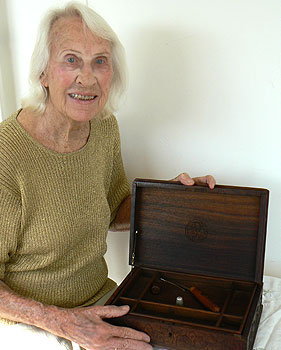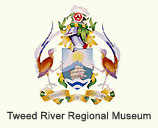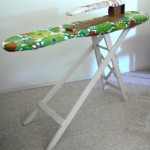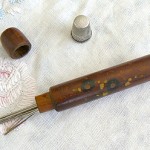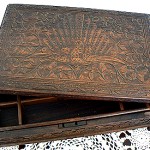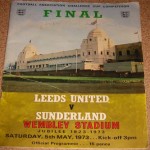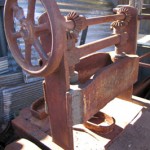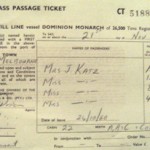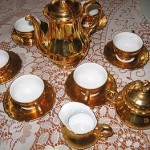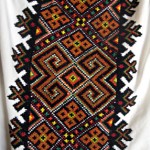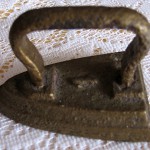(nee Reinink)
Dutch
Hoogeveen, Drente, Holland
Rotterdam, Holland on 9 May 1951
Sydney on 18 June 1951
Camp Kelso, Bathurst, NSW for 3 weeks
Niagara Park, near Gosford, NSW on an orchard
Orchard farm work
My husband Toon worked in a coal mine in Corrimal, then at the CRM/Port Kembla steelworks, before moving to Terranora, northern NSW where we purchased a farm.
I was born in Hoogeveen, Holland in 1920. When I was 12 years old I had completed six years in primary school. Then I attended a technical college. It was a household & industrial school where I learnt to sew, cook and clean. There was an academic high school where you learnt three languages – that was very standard in that time – and it was where I wanted to go. I was all set to go but then my father said, “Oh no. You just stay on until you are 14 and then you have to become a housemaid.” I had to become a maid! Oh, I got the fright of my life. That was way below me; I wanted to go up in the world. I finished technical school when I was 16 in 1936. I was Dux; came first at that school. In 1937 I commenced dressmaking and also worked in a shop demonstrating knitting and selling wool. In 1939 aged19, I commenced working in the Children’s Recovery & Holiday Homes in various towns. This is where I worked throughout the war years.
My husband to be, Toon den Exter, spent the wars years in the Dutch underground [resistance movement]. Shortly after the war in 1945 we were married. The ironing board was a wedding present from my Aunt (Tante Annigje), my mother’s sister, and her husband, Johannes Jonker, a carpenter. Gifts were hard to get after the war. We didn’t have any money and couldn’t get a place to live. We lived in a few rooms at my parents-in-law’s place. I wanted a place of my own.
There was migration starting to Australia, Canada and New Zealand – big ads were in the papers. Toon never said anything. One day I piped up, “Isn’t that something for us?” Toon said, “Yes! I have been looking at that but I didn’t dare to mention it to you.” I said, “Look, why not”.
On 9 May 1951 we departed Rotterdam on the Sibajak, travelling via the Suez Canal and docking in several places: Gibraltar, Port Said, Aden, Colombo, Fremantle, Melbourne to unload passengers and then Sydney. We had to give [all] the money we had for the passage. It depended on how much money you had; the people who paid for themselves got a cabin. We were lucky [and] got a cabin with the kids, but Toon had to sleep in the hull with the men. Then the first morning Toon was upset with me because I locked the cabin at night. He tried to get in. He slept just above the engine which was very noisy. But I wasn’t going to leave the cabin open so everybody could walk in! I’d never been on a ship before. Toon spent the rest of the trip in the cabin with the children and me.
The journey to Australia was not very relaxing. I spent most of my time worrying and supervising our four small children. Toon and I took it in turns to watch our children on the children’s play deck. Meals were in three sittings; children and then two adult sittings. As one of us always had to supervise the children, we never ate together. The food was very good but the children didn’t each much, they were too distracted with all the excitement and other children but the waiters – “jongoes” they were called – were very good and helped feed them and keep them seated. When I had spare time the washing – which I dried in our cabin – and other chores had to be done.
After our ship landed in Sydney, early in the morning, we had to have a medical check-up and go through Customs. Late in the afternoon, everyone who didn’t have arranged accommodation was brought to Sydney railway station to board the train for an army camp near Bathurst. We travelled all night in a very dirty train without any heating. About five o’clock in the morning we arrived. We were given tin mugs with hot tea and biscuits. Nice as it seems, we weren’t able to drink it without burning our lips. It was especially frustrating for the children. It was very cold and the countryside was white with frost.
Everyone had to stand in line in front of a small barrack, where a fire was burning. It was smoking so much that the door had to be kept open. Here we got our barrack numbers, tickets for mattresses, linen, crockery etc. – like soldiers – and had to collect and carry it ourselves to the allotted places. We froze to death and felt harshly treated. Artie [my son] got the whooping cough on the ship and when we were in that camp, they took him away. We weren’t allowed to see him. They had a hospital there and the women who worked there were Displaced Persons from countries around Germany. Some women lost their whole families. They had a sort of employment office. Toon went there, said he wanted a job on a farm and they said they didn’t have any for him. There was only the steelworks.
So then Toon went away on his own. He took off hitchhiking and went to different places asking if they needed someone. That’s how we got to Niagara Park near Gosford. Toon worked long hours. We lived under very basic conditions with no real benefits for the future. We had only been there a few months, I think, half a year roughly [then] Toon said, “You know what, I’ll write to people who we came out on the ship with”. So we moved into a caravan park at Towradgi Park, Corrimal [in the Illawarra] where we lived in a tent for seven months. Living at Towradgi Park was more enjoyable because we had social contact with other Dutch people. We all helped each other. My children had other children to play with and we were close to the beach and shops. A lot of Dutch people lived at the Park until they saved enough money to move on. They caught the train to Wollongong and Port Kembla and all worked at the steelworks. But we arrived just before Christmas when no employees were put on due to Christmas holiday pay, so Toon was forced to look for work elsewhere and on 19 December commenced work at a coal mine. Then after Christmas he worked for CRM steelworks at Port Kembla, often doing double and triple shifts so he could save some money.
In 1956, Toon, who was still keen to purchase a farm, had the opportunity to travel north with some friends. After selling the property we owned at Woonona [in the Illawarra], he purchased a property at Terranora on the Tweed and so we made our next move. Toon went to Terranora first. I followed him with our four children, leaving from Bulli station where my brother-in-law and his wife saw us off. A friend, who came out to Australia with us, met me in Sydney and helped with the change over to the train, which was to go to Murwillumbah. We had to sit up all night in the train and I was afraid to get off along the way. Due to the flooding of the train line past Kyogle, we were unable to go to Murwillumbah and were diverted to Brisbane. I hoped at this point in time that there would be someone in Brisbane to meet us, as I had no idea of where I was or how to get to Terranora.
At this stage, my ability to speak English was still very poor. Since arriving in Australia most of the people I had contact with were Dutch. My children also spoke mostly Dutch. On arrival at Brisbane station, Toon was there to meet us and he had arranged for us to catch the train to Coolangatta after which we caught a taxi to our new home at Terranora. It was 11 o’clock at night when we arrived, going up a muddy, slippery track.
As we could not afford to bring our furnishings with us, one of our first outings was to go to Murwillumbah to purchase some beds. After sending the children off to Terranora school, Toon and I commenced to walk to the Tumbulgum ferry and took up the offer of a lift on the way; the ferry was out of order due to recent floods. We were taken across the river in a rowboat where we caught a bus from the other side to South Murwillumbah. We purchased our beds and ask[ed] the shop if they could deliver them that afternoon and also give us a lift back home, so we would not have to walk. This they did.
The purchase of the farm left us without a cent to our name, as the monies from the sale at Woonona became the deposit to purchase the Terranora property, which included a pineapple crop from which our first income was to be made. One of my first tasks was to go the Murwillumbah with my neighbour and ask at the BGF (Banana Growing Federation) what else could be planted on the farm as the wet had destroyed the pineapple crop and our source of income. The suggestion was beans.
I like Holland but we could not have achieved there what we did here, especially for our children. It is a different country to here, everything is different. But I missed nothing and brought only the basics over with us; nothing special. I made up my mind that I was never able to go back, I thought, but I was able to go back quite a few times really. I think that Toon may have been homesick, but he was too busy I think. It was my idea to come to Australia.
My sewing skills, items and ironing board stayed with me throughout my years in Australia. Each year I would make a special new dress for my twin daughters, Helena and Immy. I also did some dressmaking for local neighbours. I didn’t want to do sewing, but it brought in a bit of money and we needed it.
April 2013
Mrs Baukje den Exter died on 5 August 2010, aged 90. The NSW Migration Heritage Centre is grateful for her recollection which has been recorded in Belongings for posterity.
Interviewed by:
Immy McKiernan, Tweed River Regional Museum


